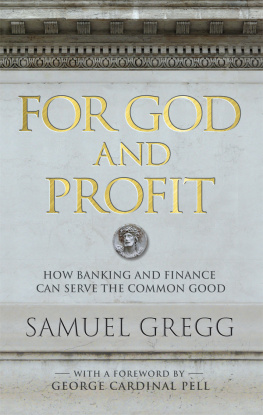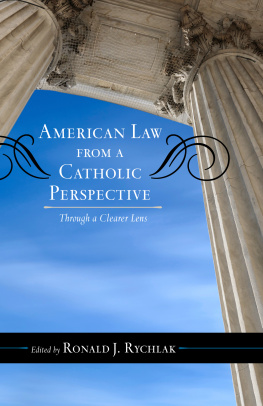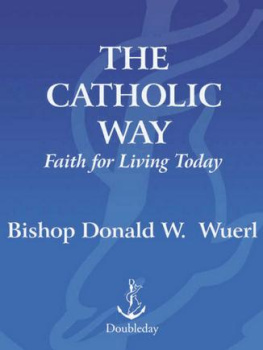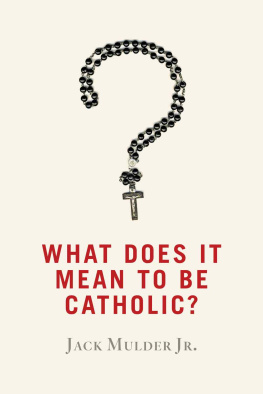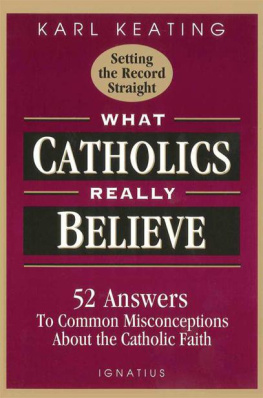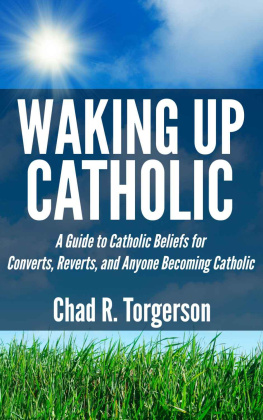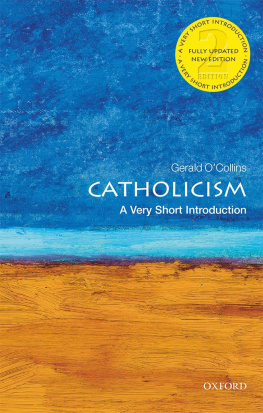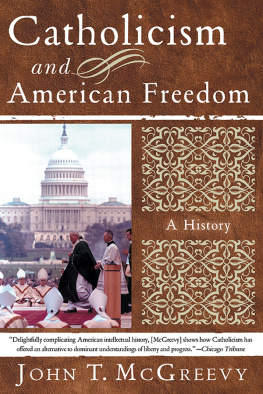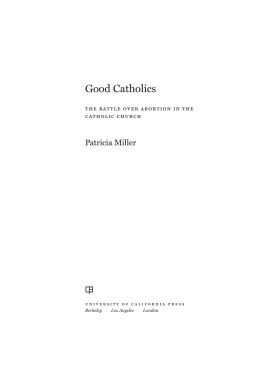The Crossroad Publishing Company
www.CrossroadPublishing.com
Copyright 2013 by Samuel Gregg
All rights reserved. No part of this book may be reproduced, stored in a retrieval system, or transmitted, in any form or by any means, electronic, mechanical, photo-copying, recording, or otherwise, without the written permission of The Crossroad Publishing Company.
The stylized crossed letter C logo is a registered trademark of The Crossroad Publishing Company.
Printed in the United States of America in 2013.
Library of Congress Cataloging-in-Publication Data available from the Library of Congress.
Gregg, Samuel.
Tea party Catholic: the Catholic case for limited government, a free economy, and human flourishing / Samuel Gregg.
pages CCLXIV
ISBN 978-08245-49817 (alk. paper)
1. Catholic Church--Political Activity--United States. 2. Christian conservatism--United States. 3. Tea Party Patriots. 4. Church and social problems--Catholic Church. 5. Church and social problems--United States. 6. Catholic Church--Doctrines. 7. Christianity and politics--United States. 8. Christianity and politics--Catholic Church. 1. Title
BX1407.P63G74 2013
261.8088282--dc23
Cover design by Ray Lundgren
In continuation of our 200-year tradition of independent publishing, The Crossroad Publishing Company proudly offers a variety of books with strong, original voices and diverse perspectives. The viewpoints expressed in our books are not necessarily those of The Crossroad Publishing Company, any of its imprints or of its employees. No claims are made or responsibility assumed for any health or other benefit.
Books published by The Crossroad Publishing Company may be purchased at special quantity discount rates for classes and institutional use. For information, please email .
I hope ever to see America among the foremost nations in examples of justice and liberality. And I presume that your fellow-citizens will not forget the patriotic part which you took in the accomplishment of their Revolution, and the establishment of their government; or the important assistance which they received from a nation in which the Roman Catholic faith is professed.... And may the members of your society in America, animated alone by the pure spirit of Christianity, and still conducting themselves as the faithful subjects of our free government, enjoy every temporal and spiritual felicity.
President George Washington
Letter to the Roman Catholics
March 15, 1790
For myself, as a citizen of the United States, and without closing my eyes to our shortcomings as a nation, I say with a deep sense of pride and gratitude, that I belong to a country where the civil government holds over us the aegis of its protection, without interfering with us in the legitimate exercise of our sublime mission as ministers of the Gospel of Christ. Our country has liberty without license, and authority without despotism.
Cardinal James Gibbons
Archbishop of Baltimore
Rome, 1887
Table of Contents
Itaque, fratres, non sumus ancillae filii, sed liberae: qua libertate Christus nos liberavits.
State, et nolite iterum jugo servitutis contineri.
Foreword
Samuel Gregg is the intellectual leader of the second generation of Catholic proponents of limited government, economic freedom, and religious liberty. With all his companions from many quarters of the world, he carries the colors for strong minds and stout hearts indeed. Originally hailing from Australia, with his doctorate won at Oxford under the supervision of perhaps one of the contemporary worlds most significant natural law philosophers, John Finnis, Gregg arrived in the United States in 2001, and steadily established his leadership with a series of impressive books, including, most recently, the highly acclaimed Becoming Europe.
When I first read the title of the present book, I was worried that Gregg had taken up a partisan theme of todays American politics. It turned out, however, that the book has very little to do with the merely partisan contentions of today and even less to do with the Tea Party movement more specifically. In fact, Greggs book has things to say to all Catholic Americansregardless of party allegiance or view of the role of governmentbut also to Catholics living outside America. As I read through his six chapters with growing admiration, I saw that he was aiming at a prey swimming down much deeperin fact, down in the depths of the ocean that has pushed up the key intellectual energies of the last 300 years. Gregg means to foster three world-transformative ideas: limited government, religious liberty, and economic liberty. And he does so with a strong grasp of the natural law and the long Catholic intellectual tradition, and for profoundly Catholic reasons.
Moreover, Gregg draws upon particular intellectual resources that few American thinkers have applied to contemporary circumstances, most notably the writings and life of the wealthiest supporter of the American War of Independence: Charles Carroll of Carrollton. Carroll experienced the repression of religious freedom and economic liberty and the lash of unlimited government in a very personal way.
As a Catholic, Charles Carroll was formally excluded from holding public office in Britains Maryland colony, despite the fact that the colony had been established by English Catholics who blessed it with a charter of religious toleration for all Christians. His forebears had seen that liberty and others taken by legislative force from all Catholics in Maryland. Those same restrictions meant that Catholics were denied opportunities for learning in the colony they had first established. Hence Charles Carrolls father was obliged to send him to France and eventually England for his education. This turned out to be a blessing, as it permitted Carroll to breathe in the air of some of the most balanced Enlightenment minds such as Montesquieu, the perennial thought of the natural law tradition associated with Catholic scholars like Francisco Surez, S.J., and the wisdom contained in the English common law. Such erudition would stand Carroll in good stead in his work as a political commentator and legislatoractivities that he combined with being a formidably successful entrepreneur.
Gregg opens his second chapter with the public motto of the Carroll family: Anywhere so long as There Be Freedom. Prior to 1776, that liberty did not dwell in its fullness in Maryland and in other places in the United Statesnot, at least, for Catholics. When George Washington reluctantly took up the leadership of the Continental Army (he had really wanted only to serve in it), he said he entered this war, more than for anything else, for religious liberty. When Washington conversed at dinner with Carroll, in the process of persuading him to join the Patriots Committee to negotiate with the French Catholic colonists and settlers living under British rule in Canada, he probed Carrolls motives for supporting the Revolution. Carroll replied: So there are no more religious tests for public office. That was his number one request of the new American polity.
Carrolls substantial financial expertise, his service on the Continental Congresss Board of War, and his unwavering moral support of his friend General Washington were among many contributions to the final success of the American Revolution. Today we often forget the risks that generation took in embarking upon their rebellion, as the British called it. The use of this word was deliberate. Britain meant to accuse men like Washington and Carroll of high treason for flagrantly violating their frequently restated pledges to be loyal to the Kingtheir public oathsand hang them. The revolutionary generation understood what was at stake in their rebellion. It was freedom itself. In this book, especially chapters three and four, Gregg shows how the system of natural liberty serves (and depends upon) the concrete practices of solidarity, subsidiarity, and the limited stateand, along with those practices, religious liberty, the first freedom.


